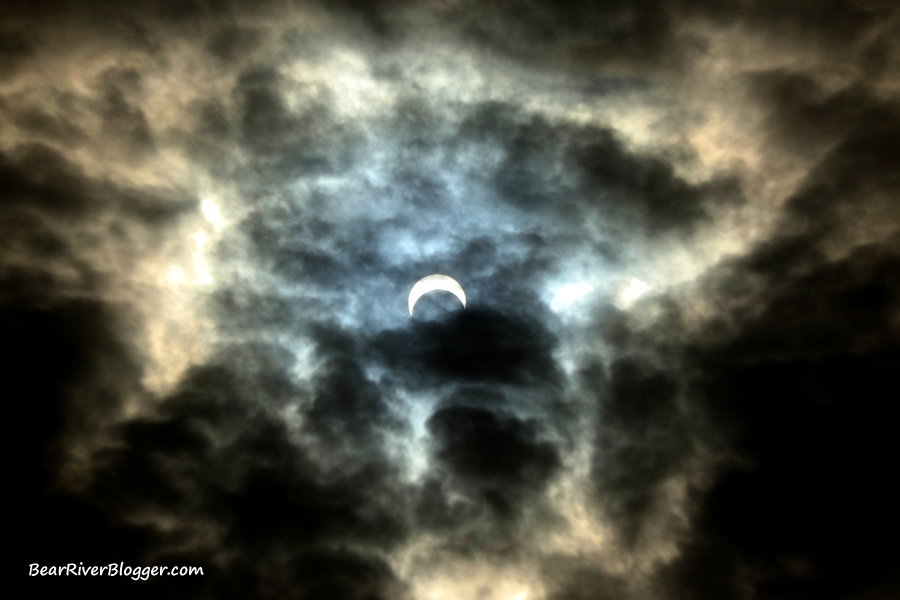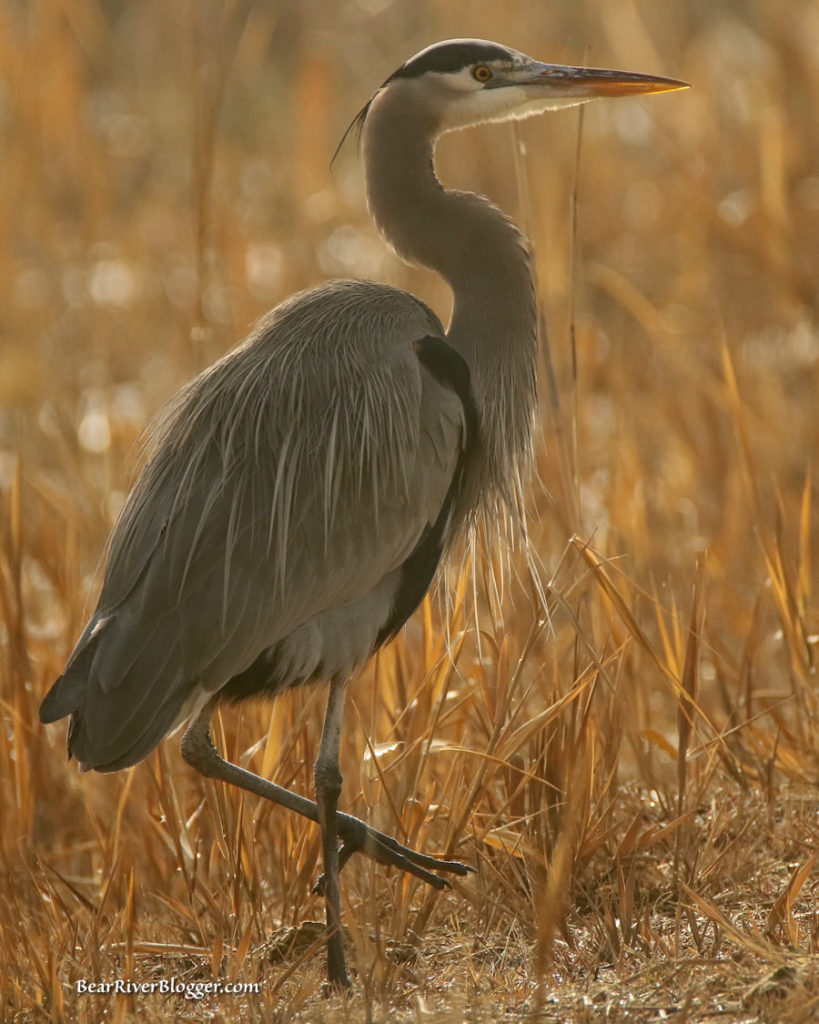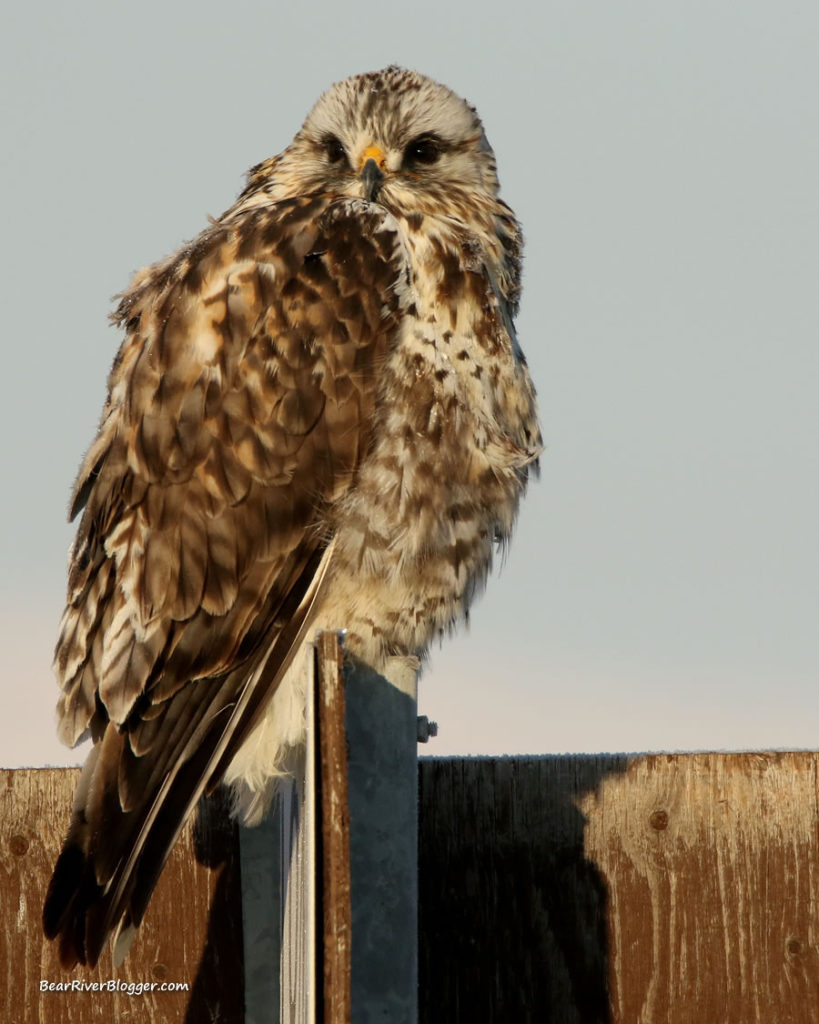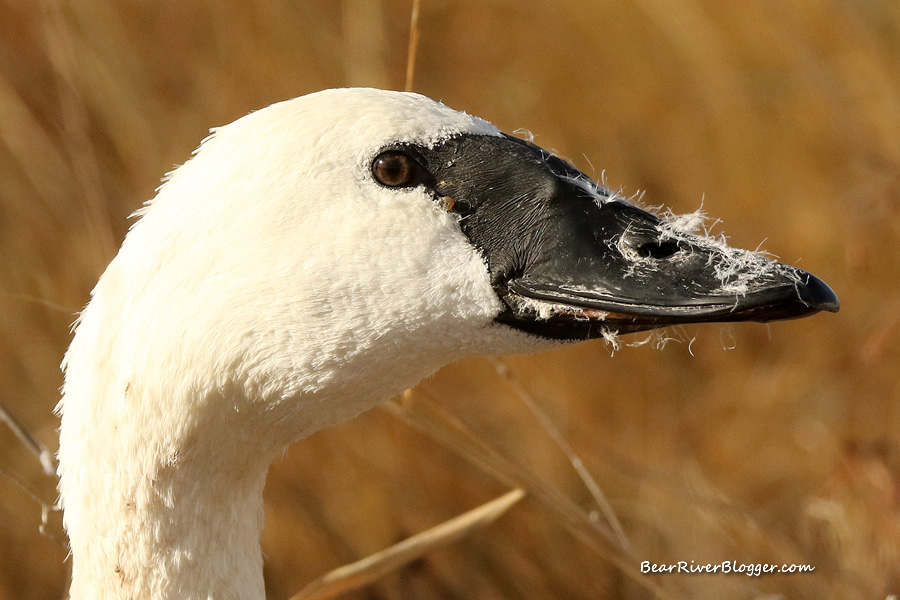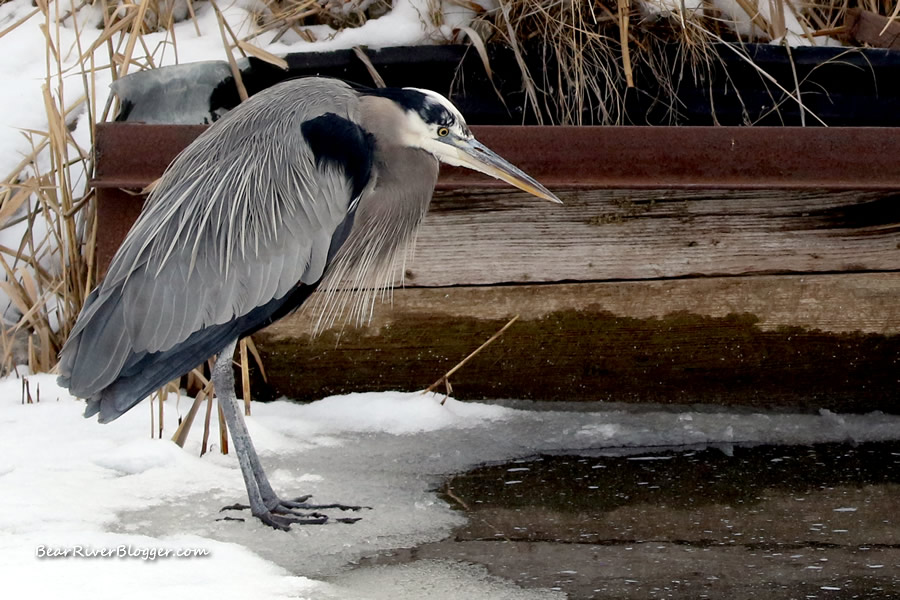This past Saturday while heading out to do some bird photography on the Bear River Migratory Bird Refuge auto tour route, or attempting to at least with such low and heavy light-stealing cloud cover making my blogging efforts seem pointless that particular morning, I was briefly but happily interrupted by, well, a unique solar eclipse event.
Or, and to offer it from another perspective, was my peculiar solar eclipse occurrence interrupted by some great birding?
I don’t know for sure but either way, this past Saturday I was treated to both a unique cosmic event with the 2023 solar eclipse and some pretty decent bird photography opportunities on the Bear River Bird Refuge, once the clouds finally burned off that is.

The uniqueness of this solar event wasn’t due to anything more, however, than just the opportunity for me to photograph the eclipse, not to mention the interesting images I was, thankfully, able to come home with, due to the prevailing cloud cover.
Yes, I know what you’re thinking, it’s virtually unheard of when a bird photographer, especially me, praises cloud cover but on this particular day, the cloud cover itself was actually a real blessing in disguise because, well, without the heavy clouds any attempt to photograph an unfiltered solar eclipse with just my camera would have most likely burned up the light sensor.
Simply put, you never, ever want to try to photograph the direct sun with a DSLR camera but Saturday gave me the exact opposite of a problem, too many clouds to even see the solar eclipse.
And for that reason and that reason alone, when I left my house early Saturday morning I carried absolutely no intentions with me of even looking at the solar eclipse, let alone photographing it until I briefly caught it peaking through the heavy clouds as I was attempting to photograph my first bird of the day, a content mourning dove sitting on a nearby section of barbed wire.
Honestly, I actually kind of blew off the solar eclipse due to the unexpected cloud cover that morning and I was about to do the same thing for the same reason with my bird photography efforts until I came across a very late-season mourning dove sitting on a stretch of barbed wire on Forest Street.
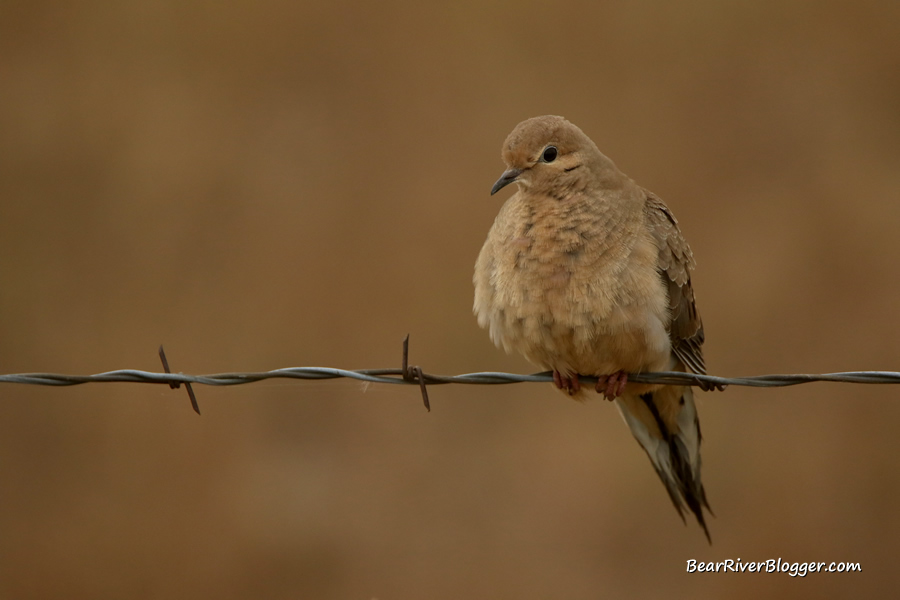
I’m only saying “late season” as mourning doves around here in northern Utah typically migrate out in early September most years so it was very strange and unexpected to see a dove on the Bear River Migratory Bird Refuge this time of the year.
And by sheer coincidence, I suppose, it was when I was actually photographing this particular mourning dove that I happened to look up and catch a very brief glimpse of the solar eclipse peaking through a tiny window of the prevailing cloud cover.
So for the next few minutes, I literally played cat and mouse with the solar eclipse, camera at the ready, as I sat in my parked vehicle at one of the pullouts on Forest Street on my way down to the refuge auto tour route.
I’m actually glad there was good cloud cover that morning as it blanketed the sun and acted as a perfect natural filter, one that allowed me to use my DSLR camera to capture a few images of the solar eclipse whenever it showed itself through a thin spot in the clouds as they slowly passed by.
To be honest, I actually think the dark clouds with the solar eclipse in their midst look kind of eerie and ominous so I rather like how the images turned out.
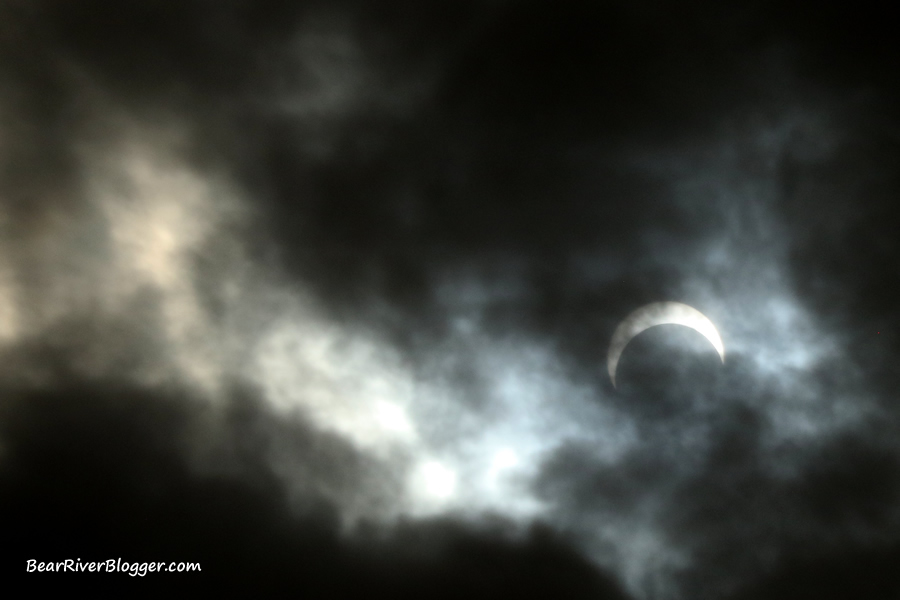
And once my interest in the solar event had been satisfied the cloud cover started to burn off and soon left me with great photography light to finish out my morning on the Bear River Migratory Bird Refuge auto tour route where I spent the next several hours enjoying some pretty good birdwatching despite it being a busy Saturday during duck hunting season on the refuge.
Besides the usual birds I typically find on the refuge auto tour loop this time of year, including great blue herons, northern harriers, and lots of waterfowl, I came across what I thought was a pair of greater yellowlegs standing in some shallow water on the south end of the drive.
If my bird identification is correct as I ran the image through the Google Photos app for a second opinion, this would be the first known greater yellowlegs that I have seen and identified this fall on the refuge.
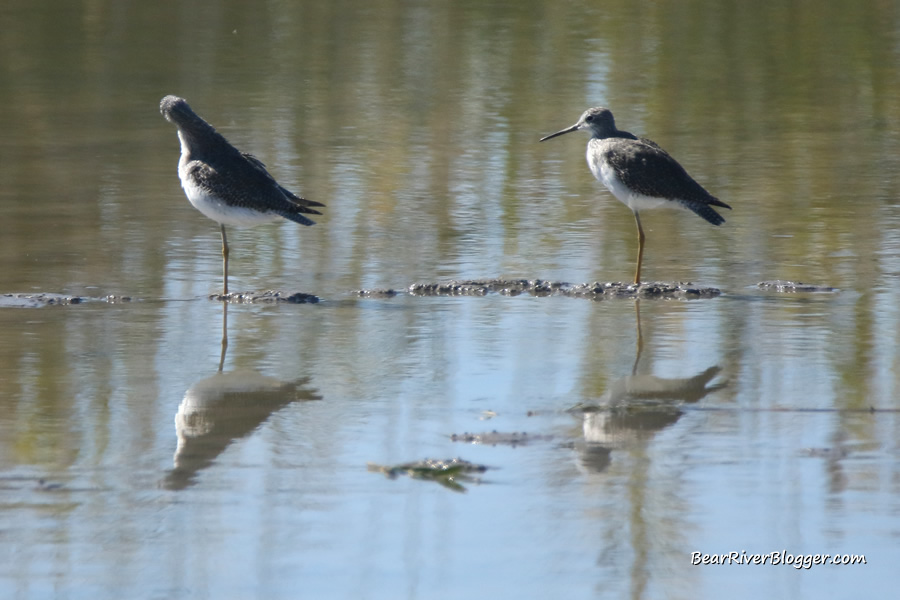
Greater yellowlegs breed in much of Canada during the summer before migrating to Mexico and South America for the winter season.
This means the greater yellowlegs we find and observe here in the United States, including the pair I photographed on the Bear River Migratory Bird Refuge Saturday, are migrating between their winter and summer grounds and will only be around for a short while as they are on a very long migration journey, thousands of miles, in fact, depending on where they stop for the winter.
So, in addition to viewing and photographing an uncommon event like the solar eclipse framed in dark, dreary clouds, I was also treated to a fairly uncommon bird sighting, well, uncommon for me at least, on the same day and who could argue with that not being a great day in and by itself.
If you’re like me, an avid birdwatcher, I offer you to head on over to our subscribe page and sign up for email notifications for future blog posts where we share our birdwatching and nature photography excursion on and off of the famed Bear River Migratory Bird Refuge.
(American White Pelicans Feeding. For short nature clips like this one and interesting stories about the natural world around us, check out our Bear River Blogger channel on YouTube for videos and updates from our travels while out in nature, both on and off of the famed Bear River Migratory Bird Refuge.)
